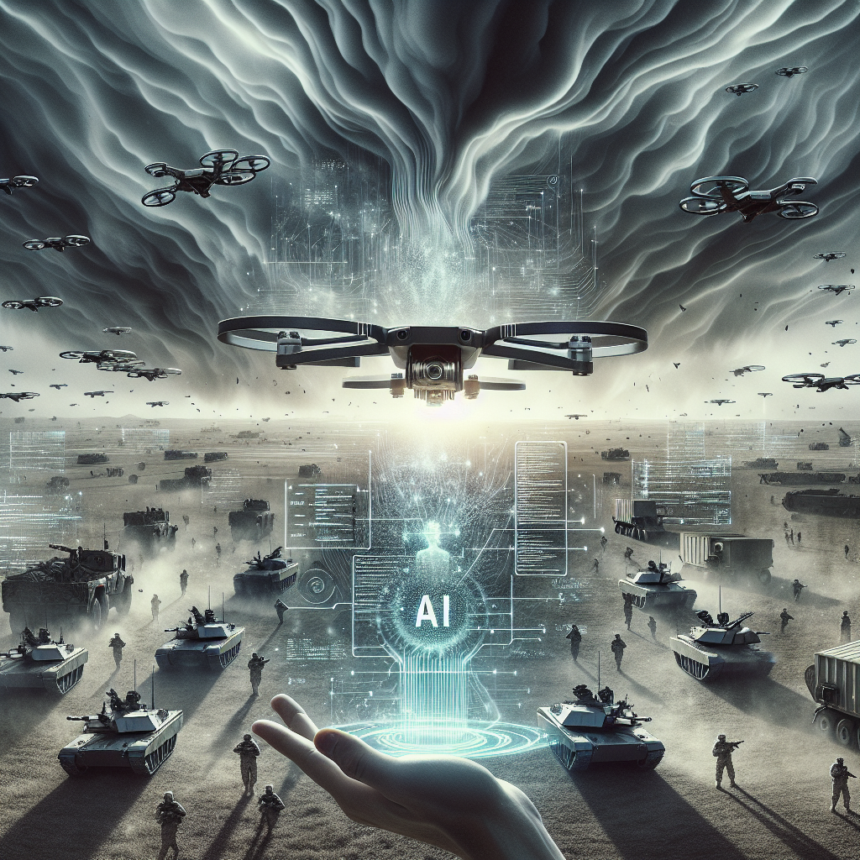The New Battlefield: How AI is Reshaping Modern Warfare
As technology advances at an unprecedented pace, the landscape of warfare is evolving in ways previously unimaginable. Among the various technological innovations, artificial intelligence (AI) is emerging as a critical force in reshaping modern warfare. From decision-making processes to battlefield strategies, AI is changing how nations prepare for, engage in, and analyze conflict.
The Role of AI in Military Decision-Making
Historically, military leaders relied on decades of experience, intuition, and available intelligence to make decisions. With the integration of AI, this paradigm is shifting. AI systems can process vast amounts of data at speeds far beyond human capability, enabling military leaders to make more informed decisions in real time.
For example, AI-driven systems can analyze satellite imagery, social media data, and other intelligence sources to identify potential threats or enemy movements. This capability not only enhances situational awareness but can also reduce the “fog of war,” making it easier for commanders to react swiftly and effectively.
Autonomous Systems and Robotics
The rise of autonomous systems is one of the most pivotal changes brought about by AI in military applications. Unmanned aerial vehicles (UAVs), commonly known as drones, have evolved from simple reconnaissance tools to sophisticated platforms capable of conducting airstrikes, surveillance, and logistics support with minimal human involvement.
Moreover, ground-based robots are being developed to perform tasks ranging from surveillance to bomb disposal, reducing the risk to human soldiers. The integration of AI into these systems allows for more complex and adaptive responses, enabling them to navigate hostile environments and make tactical decisions without direct human intervention.
Cyber Warfare and AI
In this digital age, cyber warfare has become a critical aspect of military strategy. AI technologies are being deployed to enhance cybersecurity efforts, detect anomalies, and respond to cyber threats. Using machine learning algorithms, military networks can be fortified against intrusion attempts, automatically adapting to emerging threats.
On the offensive side, AI can help craft sophisticated cyber-attacks, launching coordinated strikes against an enemy’s critical infrastructure with precision and anonymity. As warfare increasingly shifts to the cyberspace arena, the role of AI will be fundamental in both defense and offensive strategies.
Ethical Considerations
The integration of AI into warfare does not come without significant ethical concerns. The possibility of autonomous weapons making life-or-death decisions raises questions about accountability and moral responsibility. If an AI-driven system mistakenly identifies a civilian as a threat, who is responsible for the consequences—the programmer, the military leader, or the machine itself?
The development of international regulations and guidelines governing the use of AI in combat scenarios is critical to mitigating these risks. As nations around the world race to enhance their military capabilities utilizing AI, it is essential to balance technological advancement with ethical considerations.
Future Warfare Strategies
As AI continues to evolve, so too will its applications in warfare. Future conflicts may see AI-integrated systems communicating and cooperating in real-time, allowing for dynamic battlefield strategies that change instantaneously based on the unfolding situation. Enhanced predictive analytics will enable militaries to anticipate enemy actions and react effectively, potentially shifting the outcome of engagements.
Moreover, AI might facilitate improved soldier performance via exoskeletons and cognitive enhancers, making infantry more resilient and effective in combat situations. The modern battlefield will likely blend human decision-making with AI intelligence, creating hybrid strategies that push the boundaries of traditional warfare.
Conclusion
In conclusion, AI is indelibly altering the nature of modern warfare. From transforming decision-making processes and enhancing autonomous systems to redefining cyber warfare and provoking critical ethical discussions, AI’s impact is far-reaching. As nations harness its power, the new battlefield will not merely be defined by soldiers and weapons but by the intelligent systems that support and enhance human capabilities.
FAQs
1. How does AI enhance military decision-making?
AI enhances decision-making by processing vast amounts of data quickly, providing insights that help military leaders make informed, timely decisions.
2. What are autonomous systems, and how are they used in warfare?
Autonomous systems, such as drones and ground robots, perform tasks without human intervention. They can conduct surveillance, logistics operations, and even targeted strikes.
3. What are the ethical concerns surrounding AI in warfare?
Ethical concerns include accountability for actions taken by autonomous weapons, the potential for AI to make life-or-death decisions, and the risk of civilian casualties from AI errors.
4. How does AI contribute to cyber warfare?
AI enhances cybersecurity measures by detecting threats in real time and can also assist in orchestrating sophisticated cyber-attacks against enemy infrastructure.
5. What does the future hold for AI in military strategies?
The future will likely see increased integration of AI in cooperative strategies among systems, improved predictive capabilities, and enhanced soldier performance, potentially leading to more complex and dynamic battlefields.











